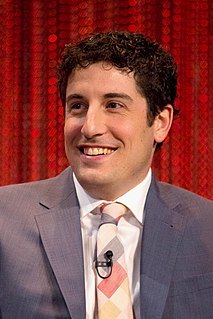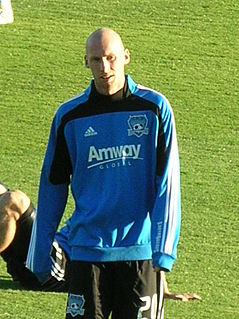A Quote by Stefan Kieszling
Once one has attained a high level of success at any pursuit and especially an unorthodox pursuit like rowing, one develops a number of generally self-congratulatory half-truths to explain how it happened that he ascended to that particular pinnacle. Often because original motivations don't seem to have much in common with the eventual success, the real and rationalized motivations are difficult to separate.
Related Quotes
The leaders we revere and the businesses that last are generally not the result of a narrow pursuit of popularity or personal advancement, but of devotion to some bigger purpose. That's the hallmark of real success. The other trapping of success might be the by product of this larger mission, but it can't be the central thing.
The student of biology is often struck with the feeling that historians, when dealing with the rise and fall of nations, do not generally view the phenomena from a sufficiently high biological standpoint. To me, at least, they seem to attach too much importance to individual rulers and soldiers, and to particular wars, policies, religions, and customs; while at the same time they make little attempt to extract the fundamental causes of national success or failure.
As I stood in the booth chatting to people, it occurred to me that besides good racing, the Crew Classic provided an ideal setting for the brotherhood of rowing. The brotherhood connects real rowing people. Teammates who haven't visited in years came together, and so do former opponents who once battled like mortal enemies. Suddenly they discovered they have much more in common. Long live the brotherhood of rowing.
Truth is a pursuit, it's a quest. And proof is certainly in the pudding in this particular instance, because the film, and the evidence accumulated in making the film, led to this man's release from prison. And that's hardly ever happened, if it's happened at all, in any other film that I can think of.







































